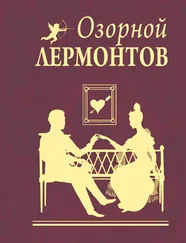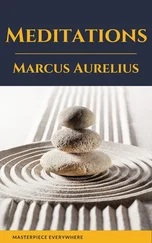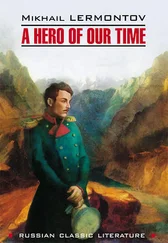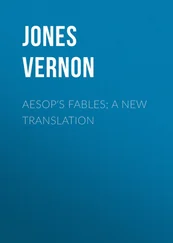1 ...6 7 8 10 11 12 ...48 “‘Ah! Kazbich!’ I thought and remembered the chain mail shirt.
“‘Yes,’ replied Kazbich, after a certain silence, ‘you won’t find one like it in the whole of the Kabarde. Once—this was beyond the Terek River—I was riding with the abreks to recapture herds from the Russians. We’d had no luck and scattered, each in his own direction. Four Cossacks rushed up behind me; I heard the yells of the gyaurs [18] gyaurs: Non-Muslims. The word is a Turkic version of the Persian word for infidel.
behind me and I saw a thick wood in front of me. I sat low to the saddle, entrusted myself to Allah, and for the first time in my life I insulted my horse with lashings of my whip. Like a bird he dived between branches; sharp thorns tore my clothes, dry elm branches beat me across the face. My horse leapt over tree stumps, ripped shrubs apart with his breast. Perhaps I should have abandoned him at the forest’s edge, and hidden myself on foot in the woods, but I was sorry to part with him—and the prophet rewarded me. Several bullets squealed over my head; I could hear the Cossacks in hot pursuit… Suddenly, before me there was a gully; my steed paused for thought—and jumped. His hind hooves had come away from the opposite bank, and he hung there from his front legs. I cast away the reins and threw myself into the gully; this saved my horse: he sprang out. The Cossacks saw all this, only not one of them came down to look for me. They probably thought that I had killed myself, and I heard them give up trying to catch my horse. My heart was bleeding. I crawled through thick grasses along the length of the gully—and then I see: the forest had ended, several Cossacks are riding into a clearing and then, running right up to them is Karagyoz. [19] Karagyoz: A Turkic name, which literally means “black eyes,” but also refers to a Turkish shadow puppet, popular for many centuries in countries near Turkey.
They all threw themselves at him with a cry; they chased him for a long, long time, and twice one of them almost managed to throw a lasso around his neck. I started to tremble, cast my eyes down, and began praying. After a few moments I lift my eyes and see: my Karagyoz is flying, his tail fluttering as free as the wind, and the gyaurs are far behind, one after the other moving along the steppe on worn-out horses. By Allah, it’s the truth, the real truth! I sat in my gully until late into the night. Suddenly, what do you think happens, Azamat? In the darkness I hear a horse running along the gully’s edge, snorting, neighing, and beating his hooves on the ground. I recognized the voice of my Karagyoz: it was him—my lifelong friend!… Since then, we have never separated.’
“And I could hear how he patted the smooth neck of his steed with his hand, giving him various affectionate names.
“‘If I had a herd of a thousand mares,’ said Azamat, ‘then I’d give them all to you for your Karagyoz.’
“‘ Yok, [20] Yok: This means “no” or “not.” It is said to be Tatar.
not interested,’ replied Kazbich indifferently.
“‘Listen, Kazbich,’ Azamat said, fawning at him, ‘you’re a kind person, you’re a brave dzhigit, but my father is afraid of the Russians and won’t let me into the mountains. Give me your horse, and I will do anything you want. I will steal my father’s best rifle or saber for you, whatever you desire—and his saber is real gurda. [21] gurda: An expensive weapon made of high-quality steel.
Hold the blade in your hand, and it will stick itself into a body—a chain mail shirt like yours wouldn’t stand a chance.’
“Kazbich said nothing.
“‘The first time I saw your horse,’ continued Azamat, ‘he was turning circles and jumping underneath you, flaring his nostrils, with splinters of flint flying from his hooves, and something I can’t explain happened in my soul—it has made me weary ever since. I look at my father’s best steeds with scorn, I am ashamed to be seen on them, and a longing has seized me, and I have sat for whole days on the cliff edge in anguish, while thoughts come to me every minute of your jet-black horse with his elegant gait, with his smooth, arrow-straight spine. He once looked me in the eye with his bold eyes, as though he wanted to utter a word. I will die, Kazbich, if you don’t sell him to me!’ said Azamat, with a trembling voice.
“I could hear that he had started to weep—but I must tell you that Azamat was a very persistent little boy, and sometimes, nothing would drive away his tears, even when he was younger.
“The reaction to his tears sounded a bit like laughter.
“‘Listen!’ said Azamat with a firm voice. ‘You’ll see, I’ll resolve everything. If you want I’ll steal my sister for you. How she dances! How she sings! And she embroiders with gold—it’s a marvel! No one has ever had such a wife—even the Turkish Padishah [22] Padishah: This was a title for the Sultan of Turkey.
… Do you want me to get her? Wait for me tomorrow night over there, in the ravine, by the stream. I’ll go past with her on our way to the next aul —and she is yours. Isn’t Bela at least worth your steed? Don’t tell me Bela isn’t worth your steed?’
“Kazbich said nothing for a long, long time; finally, instead of an answer, he struck up an ancient song in a low voice:
The many lovely girls of our land,
their dark eyes sparkle with stars and,
Love them: a sweet and enviable destiny,
Better though is courage and liberty.
Gold will buy you four wives yes,
But a spirited horse has no price,
In a wind-storm on the Steppe he’ll abide,
He won’t betray you, he won’t lie. {a} a I beg the reader’s pardon for putting Kazbich’s song into verse, when it had been relayed to me in prose—but such a habit is second nature to me.
[23] There is a footnote here in Lermontov’s original: Я прошу прощения у читателей в том, что переложил в стихи песню Казбича, переданную мне, разумеется, прозой; но привычка — вторая натура. (Прим. Лермонтова.)
“In vain, Azamat begged him to agree, he wept and flattered him, and swore oaths. In the end, Kazbich impatiently cut him short:
“‘Away with you, you silly little boy! Where would you be going on my horse? He’d throw you off within the first three paces, and you’d break your head on a rock.’
“‘Me!?’ cried Azamat in a fury, and the iron of the child’s dagger began to ring against the chain mail shirt. A strong hand pushed him swiftly off, and the boy struck so hard against the wattle fencing that it started to sway.
“‘Let the games begin!’ I thought, and rushed into the stable, bridled our horses, and led them out into the back courtyard. After just two minutes, there was a terrible commotion in the saklya. This is what had happened: Azamat had run inside with a torn beshmet, saying that Kazbich had tried to knife him. Everyone grabbed up their weapons and leapt out—and the fun began! A cry, a noise, shots; but Kazbich was already mounted, and twirled down the street among the crowd, like a demon, brushing them off with his saber.
“‘Best not to feel the heel of someone else’s meal,’ I said to Grigory Alexandrovich, catching hold of his arm, ‘wouldn’t it be better for us to be off now?’
“‘No, wait a moment, let’s see how it ends.’
“‘Well, it’s likely to end badly. These Asiatics are always like this—they pull out the bouza, and the carnage begins!’
Читать дальше
Конец ознакомительного отрывка
Купить книгу
![Михаил Лермонтов A Hero of Our Time [New Translation] обложка книги](/books/27671/mihail-lermontov-a-hero-of-our-time-new-translati-cover.webp)










